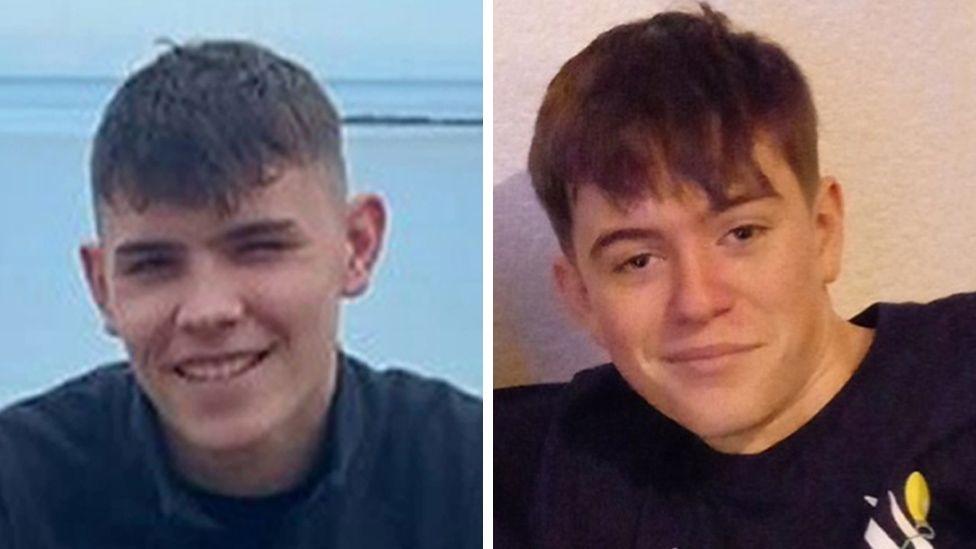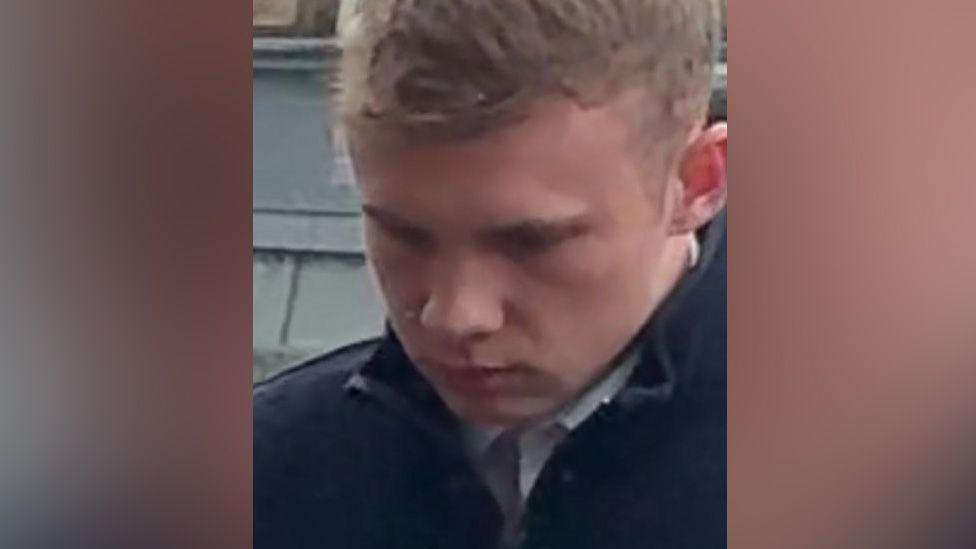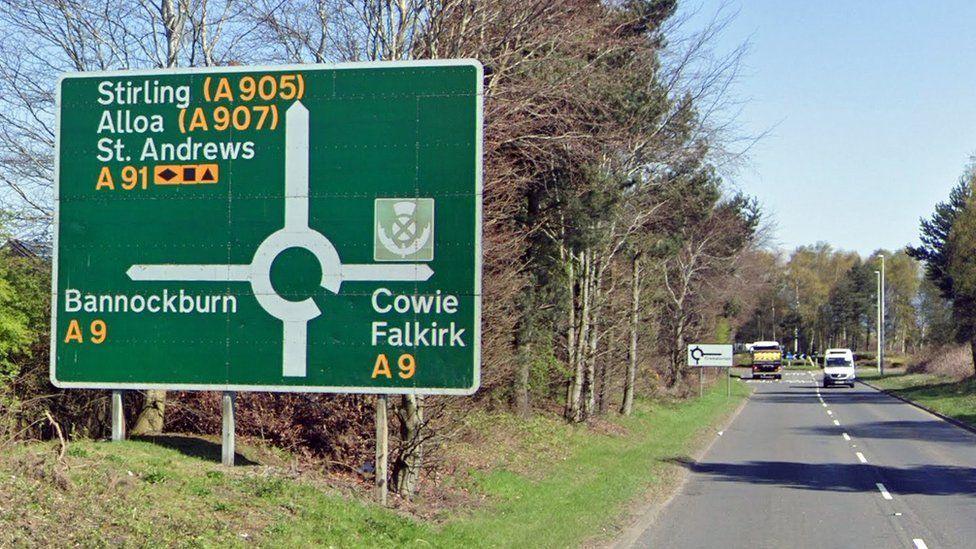Teenage driver cleared of causing deaths of his best friends

Kyle Marshall and Jayden McConnell died in March 2024
- Published
A teenage driver who lost control of a car killing his two best friends has been cleared of causing their deaths.
Jayden McConnell, 17, and Kyle Marshall, 19, both from St Ninians's, Stirling, were passengers in the car driven by Charles Gray when it spun out of control on a known "greasy corner" on the A91 near Bannockburn Interchange.
Jurors at Stirling Sheriff Court - who had been told Mr Gray had been "the perfect driver" since passing his test a month earlier - took less than two-and-a-half hours to find the 19-year-old not guilty.
Mr Gray, who denied the charge of death by careless driving, was told by Sheriff Euan Gosney: "You are free to go."
Mr Gray, an apprentice electrician from Bannockburn, had passed his test only the month before the collision on 17 March 2024.
His family and family members of the teenagers who died were silent as the majority verdict was announced in court.

Charles Gray was found to have been the "perfect" driver since passing his test
The court heard that Mr Gray's 2006 Vauxhall Corsa had left Stirling Services and lost control on a wet road at about 15:50, shortly after leaving the roundabout and joining the A91.
It crossed the centre line and was struck side-on by a heavy tipper lorry coming the other way.
The impact caused "a significant intrusion" into the back of the vehicle, where Jayden and Kyle were sitting, before sending the car into a crash barrier.
The teenagers died at the scene from multiple injuries.
Mr Gray's then girlfriend, Lauryn Moir, now 19, in the front passenger seat, was not seriously hurt but he suffered life-changing injuries.
The court heard how he was no longer breathing when an ambulance crew – on their way to hospital with another patient – arrived on the scene by chance, immediately after the accident, and opened his airway, saving his life.
He was airlifted to hospital where he spent nearly two months with a ruptured spleen, spine damage and a traumatic frontal lobe brain injury which, he said, affects his life every day and left him struggling to concentrate or control his emotions.
Often appearing to choke back tears, he told his counsel Tony Graham KC he remembered nothing of the accident nor the journey leading up to it.
Mr Gray said the first he knew about it was waking from an induced coma four weeks later, and learning he had been in a collision in his car with his girlfriend and two friends.
Two days later, his mother broke the news about Jayden and Kyle.

The crash happened on the A91, between Bannockburn Interchange and Greencornhills roundabout
He said: "She told me that the day I collided with the HGV my two best friends didn't make it at all."
Mr Graham: "How did you feel about that"
Mr Gray replied: "I was broken that they'd passed away – broken. I still feel broken to this day. Nothing has changed.
"I feel, now, what I've gone through is nothing compared to what the families of the boys went through and are still going through to this day."
Asked about dashcam footage that showed the black Corsa apparently rotated clockwise on its axis and heading on the wrong side of the road towards of the oncoming tipper – the last few seconds of his friends' lives which the prosecution repeatedly played in court – Mr Gray told his counsel: "Ever since I saw that footage being played I can't stop imagining it when I'm sleeping."
During the trial, jurors heard it was a matter of agreement that an analyst who studied data from the Corsa's insurance company "black box" found Mr Gray had been "the perfect driver" until the collision.
Wreckage checks not carried out
The A91 exit was said to be a long-known "greasy corner" and another driver gave evidence of starting to slide there only a few hours earlier.
Two eyewitnesses said Mr Gray had been driving either "normally" or "not recklessly" about the same speed as other traffic before losing control, and a police expert who carried out a post-accident examination of the car said it was "unknown" whether or not there could have been a contributing mechanical fault.
The court heard police vehicle examiners had not carried out 20 checks on the wreckage that might have revealed what happened, and had not been equipped with a code reader to analyse memory of the crashed vehicle's on-board diagnostics system, which could have revealed a braking defect.
The court also heard that the police had not tested the slipperiness, or co-efficient of friction, of the road surface where the car was said to have lost control.
Police accident investigator PC Yvonne Smith said she found no physical evidence to show exactly where the Corsa lost control.
Related topics
- Published19 March 2024
